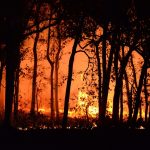 July 29, 2020 11:52 am
Published by Climate Extremes
July 29, 2020 11:52 am
Published by Climate Extremes
Climate change will affect prescribed burning days in the future. Unexpectedly, it is not all bad news, but as the coming century progresses there are definitely changes ahead for our firefighters in Australia when it comes to preparing for a fire season, especially along the east coast of Australia.
 May 21, 2020 4:16 pm
Published by Climate Extremes
May 21, 2020 4:16 pm
Published by Climate Extremes
New research shows regional climate models consistently provide added value across Australia compared to global climate models. As a result, researchers and policymakers can obtain plausible improvements in future climate projections from the current generation of available RCMs.
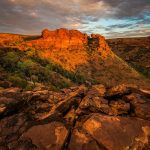 February 11, 2020 11:39 am
Published by Climate Extremes
February 11, 2020 11:39 am
Published by Climate Extremes
CLEX researchers found that regions where there is a larger drying trend tend to be more sensitive to land water availability and have more heatwave days. They found that the effect of dry soils before a heatwave varies considerably across Australia.
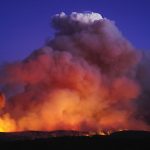 November 26, 2019 1:50 pm
Published by Climate Extremes
November 26, 2019 1:50 pm
Published by Climate Extremes
Catastrophic wildfires like the Black Saturday wildfires in 2009 and Canberra Wildfires of 2003, which were so large and dangerous that they generated their own weather systems – including the world’s first filmed fire tornado – are likely to be more frequent in the future as a result of climate change across southeast Australia
 July 19, 2019 9:00 am
Published by Climate Extremes
July 19, 2019 9:00 am
Published by Climate Extremes
This project aims to discover where and when regional climate models improve (or not) on the simulation of Australian heatwaves, relative to their host global climate models.
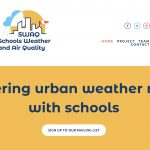 March 18, 2019 2:38 pm
Published by Climate Extremes
March 18, 2019 2:38 pm
Published by Climate Extremes
Schools Weather and Air Quality (SWAQ) is a citizen science project funded by the Australian Government’s Department of Industry, Innovation and Science as part of its Inspiring Australia - Citizen Engagement Program.
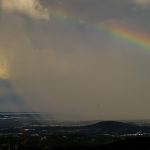 March 8, 2019 2:21 pm
Published by Climate Extremes
March 8, 2019 2:21 pm
Published by Climate Extremes
CLEX researchers evaluate the performance of CORDEX simulations over Australia against gridded observations of temperature and precipitation.
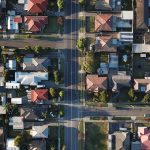 August 14, 2018 5:22 pm
Published by Climate Extremes
August 14, 2018 5:22 pm
Published by Climate Extremes
The Schools Weather and Air Quality (SWAQ) network is placing instruments in Sydney schools to fill gaps in meteorological and air quality observational sites (www.swaq.org.au). This project will contribute to the development of the SWAQ network and assess the influences of spatial variability in Sydney's urban climate and air quality.








